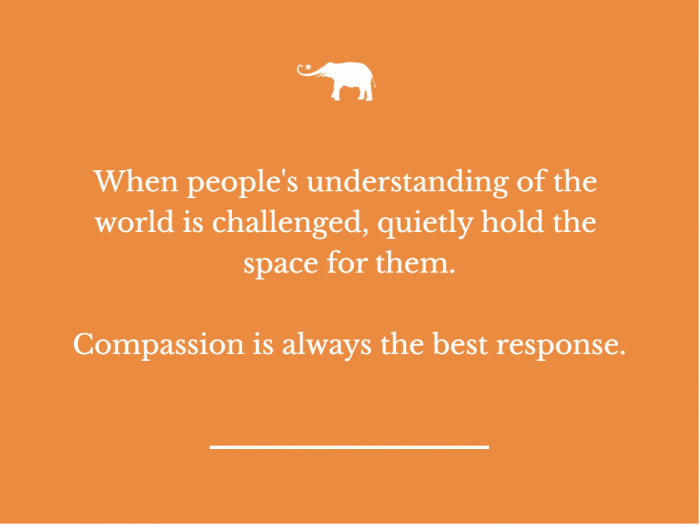I asked Sonia Choquette’s oracle deck “Ask Your Guides” to tell me about the energies around the Lion’s Gate portal and the next new moon (both are on August 8th). The Truth card and the Shadow card fell out of the deck together while I was shuffling.
I’m reading this as shadows being revealed on August 8th or soon after. Could be on the world stage. Possibly someone many people trust. This could cause cognitive dissonance. Or a refusal to believe what the story or evidence is suggesting. When Sally or Jonathan’s shadow side is revealed, the revelation can be a time of stress and disorientation, especially for those who perceived Sally or Jonathan as a person of integrity.
“The mind so hates to be confused, to be open, and to not know.” These words are from A Course of Love. The text continues: “It desires anchors to hold it in one spot, and held there suffers the pounding of the sea of change, resists the current . . . The mind will always return to where it feels safe and sure of itself. . .”
If these times of chaos, of the world being turned upside-down (or right-side up), are given to us as a chance to step into mastery and servanthood more than ever before, then the “test” for some of us may be to discover new depths of compassion and tenderness within us when we are surrounded by people who are feeling ambushed by a startling surprise and in the throws of cognitive dissonance. Compassion doesn’t concern itself with what’s right and what’s wrong–it’s never about, “Yes, I definitely think this news report shows a blatant lack of integrity and I trust the report.” It’s always about, “How can I serve you? Are you okay? I’m happy to listen.”
The Native American practice called the Rule of Six might help us weed out the need to be right. Judy Sorum Brown has written about this practice:
“The “Rule of Six,” a Native American thinking process or discipline, requires that instead of coming up with one single answer to the question, (which comes, of course from the story we tell ourselves about what is going on) we instead come up with at least six possible, or good, stories about what is going on. And then having done that, we hold all six stories in our head, and do not choose among them.
“This is very hard for the Western mind. Even when we think of two possibilities, it is for the implicit purpose of having those two possibilities fight it out, until one wins. Thinking about more than one cause of an event or more than one possibility of an outcome is, in our mind, simply an invitation for us to quickly choose the right one. In fact, we move so quickly from what we observe, to the story we tell ourselves about that observation, to a conclusion, that we hardly realize that there is a space between what we see and the story we tell ourselves about it. We go from perception, to story, to conclusion in a nanosecond. We collapse awareness into action as if they were a single thing.
“The Native tradition, by contrast, holds that there is a generous and open space after we notice something. And that is the space within which to hold many possible interpretations, or causes, or developments.”
I have used this practice and found it melts my expectations that everyone behave according to my notions of what is proper and replaces my insistance on people doing things my way with compassion.












Read 0 comments and reply